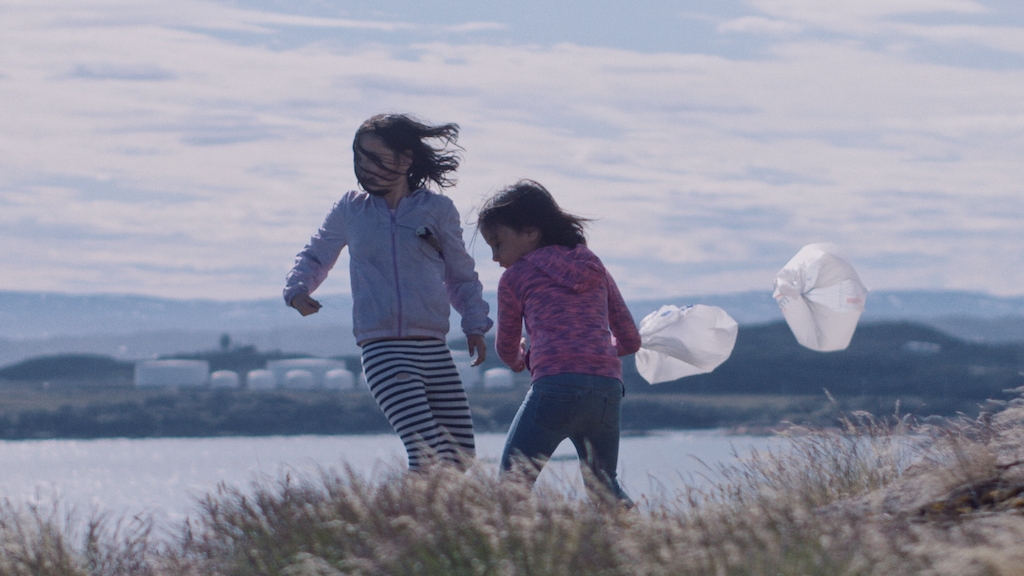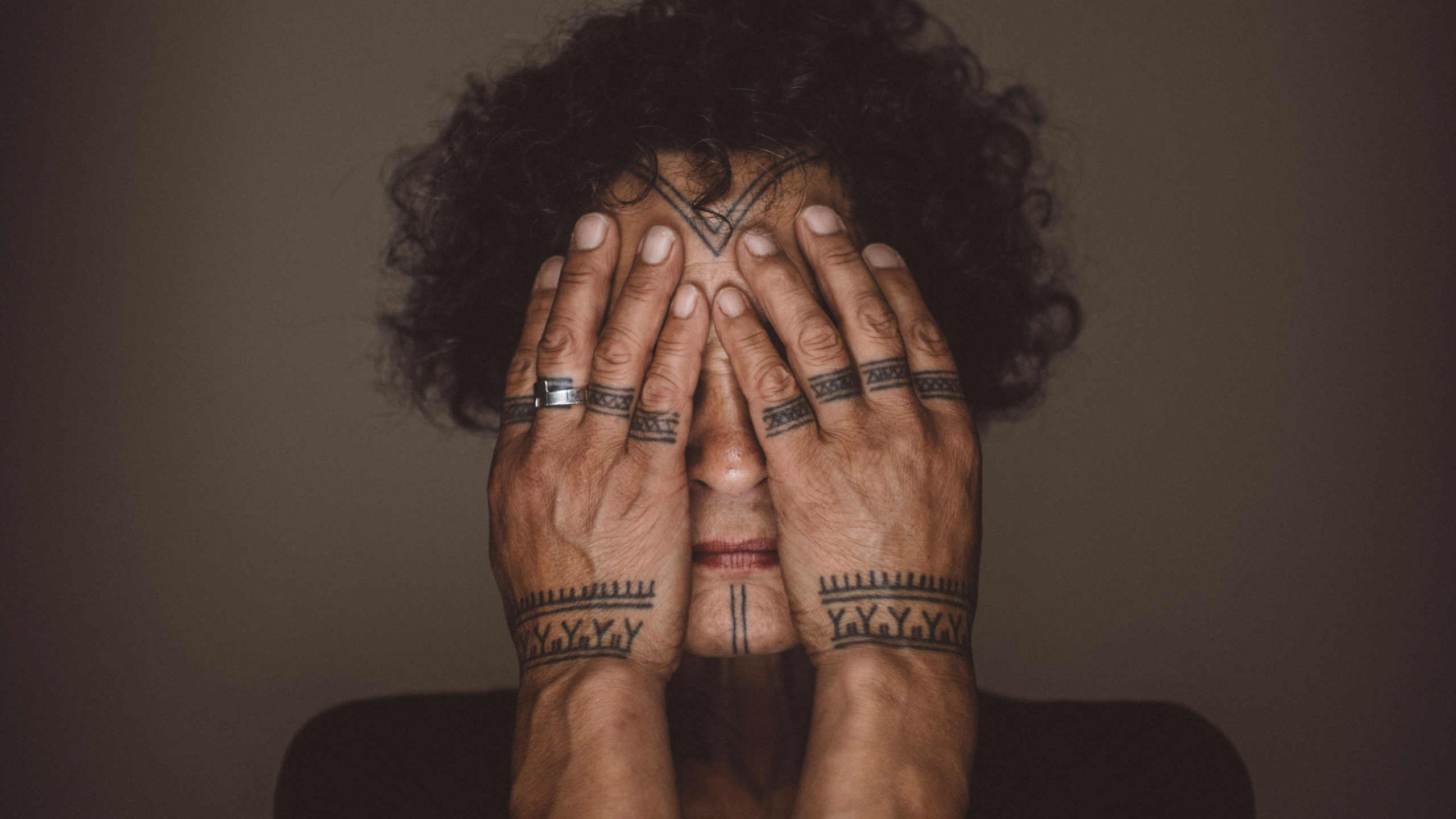A new documentary is a cry for decolonization across the Arctic
"Twice Colonized," five years in the making, portrays Inuit lawyer Aaju Peter and her decades of battle with colonialism past and present.

If you have been wondering what it feels to be colonized, to find that your land, your people, your body and mind have all been subjected to the will and whims of a foreign colonizer, Aaju Peter and the new documentary, Twice Colonized, in which she is portrayed, will most likely help.
Peter, who is Inuit, is trained as a lawyer, and works as a human rights activist. She’s a powerhouse of anger, willpower and the desire to raise others into alacrity and action. She has campaigned for decades for the rights of Indigenous peoples of the Arctic to hunt seals and received, in 2012, the Order of Canada. Today she is advocating the establishment of a formal, consultative Indigenous Forum within the European Union. In Iqaluit, Nunavut, where she lives, she teaches Inuktitut, the local Inuit language, to those who have lost it or never had it. She struggles for the cultural rights, land rights and all other rights of indigenous peoples whether in Greenland, where she was born, in Nunavut or elsewhere.
The loss
During the five years it took to shoot “Twice Colonized” Aaju Peter lost her young son to what appears to be suicide; a mindnumbing tragedy, a life ended far too early by a fall from the 10th floor.
You may, as I did, misunderstand the film as saying that it was this unbearable loss that propelled Peter to pursue, as she does, every available opportunity to take back her powers, her body and soul and to urge all of us — the colonizers as well as the colonized — to decolonize ourselves so that our children and grandchildren may hopefully live free from colonialisms restraints.
It is a tempting interpretation, but also, as I learn when we meet, a far too easy one.
“My fight started when I was 18. I had had enough of only being Danish, of only speaking Danish, of only doing everything the Danes wanted. I was so pissed off, I changed my name. I didn’t want anything to do with Danish or Denmark or anything,” Peter tells me.
She is in Copenhagen for the opening of Copenhagen Dox, one of Europe’s largest festivals for documentaries, where Twice Colonized featured as the lead show and received standing ovations. The film premiered in North America in January at the Sundance Film Festival in Utah and will continue to festivals in Canada and elsewhere.

It is all about colonialism and how it affects the individual:
“Some white people say to me, ’hey, but you got something good out of it. You have a good education and all these nice experiences.’ And okay, I say, that’s probably fine from where you’re standing, but I’m telling my story and how it affected me,” Peter tells me.
“I was born into a Danish colony, even though Denmark didn’t want to call it a colony. And it’s not only the land that is colonized. It’s the person, the people and their minds.”
At the age of 11 she did well in school and was put on a plane from Greenland to Denmark, as many other young Greenlandic children at the time. The idea, very much a colonial concept, was that the children would learn Danish, be cultivated, educated and returned to Greenland to lead their nation into a brighter future. To Peter, who stayed in Denmark until she was 18, the passage turned into debilitating loss:
“I had to learn a new way of thinking, a new way of expressing anything. A different culture, different people, different heritage. That’s how I ended up speaking Danish and when I went back to Greenland, I couldn’t speak my own language. My mind and my thinking was so colonized,” she says.
She found herself unable to reconnect meaningfully with her family and community. Instead, she left. She met an Inuit from Nunavut and followed him to Iqaluit, which seemed as far away from Denmark as she could get.
“I moved to the Canadian Arctic which was colonized by the Canadian state, so now I was twice colonized. That’s where the title came from,” she says.
From the screen we learn that Peter later partnered with Marcus, a white Canadian and then broke up with him again. The film evokes much love and longing, but also obnoxious abuse and pain. The viewer never meets Marcus in the flesh, only as a manipulative and accusing voice on Peter’s mobile phone.
“I had to learn English and I took my law degree in English. That became my third identity, and then I had to deal with the English-speaking state and live with southern white people, which became a fourth form of identity. So I am a living, breathing quadrilingual and quadricultural person. If you are looking for the meaning of colonization and being colonized it is when all your autonomy is taken from you by a foreign state, a foreign language, and when foreign cultures and customs are imposed on you,” she says.
The demons
By the film’s promotion material we are told that Peter is “on a personal journey to confront the demons of her past,” but she is surely also very much concerned with the present. On screen she dances riotously to rock music, she cries and laughs, obviously determined to live, feel, speak, journey and act as she must. At one point in the film, she seems to collar any demons she might still be harboring and expertly bends them to her own devices: “Your experience is your power,” she exclaims.
Peter wants to turn also the more painful elements of her past into dialogue and change, not into additional anger or rage. She points at colonialism as the source of so many current ills, including the many suicides in Nunavut and in Greenland, but she urges dialogue, not conflict or confrontation. She wants to assist others who feel trapped, as she has felt trapped, by colonialism past and present. She strives to include, not exclude, as many as possible in the decolonization process:
“In Canada the buzzword is reconciliation. We have to do it in a kind and open way. Be kind to each other. There was a lot of hurt and there are so many assumptions. And we don’t want that. We have to listen to each other, not make it personal: ‘It was your fault’ or ‘you did this and you did that’. No, that’s out, that is not permissible. We need kindness, humility and patience. Kindness and understanding is my goal,” she tells me.
On screen she coins a catch-all: “It’s not about why it happened, it is about how we make it stop.” Not that she wants to obliterate the past or paint it in rosier colors; on the contrary. In the film she journeys to Denmark to revisit her past and she travels with her brother to Nanortalik in southern Greenland; a painful recollection of a rough childhood and an angry father. Hunger was close and discarded fruits from the dump part of the diet. She seeks to acknowledge the past, but as a window to a better future:
“I think many of us just stop there because the ‘how-to-stop-it’ is just too much work. We see suicide happening all over. We see homelessness everywhere. We see abuse. We see so many injustices in our everyday life. But do we do something about it? No, we go, ‘oh, I’m too busy’,” she says.
On screen she writes the first sentence of a book: “Is it possible to change the world and mend your own wounds at the same time?”
She travels extensively, and seeks out any and all that might inspire her or be inspired themselves. She calls on other Inuit in particular, but also on many others, including a Sámi community in northern Sweden. She embraces the young, the old, politicians, students and all in between:
“It is really up to you. It’s up to us to do something. If we all decided to put in one, five or ten percent of our everyday life to do something with issues that we care about we could move mountains,” she says.
“That’s what I would like to see. It’s not good enough to just say something. There’s way too many people who just say something and don’t go past that.”
“Twice Colonized” (92 min.) by Lin Alluna (Denmark), written and lived by Aaju Peter. “Twice Colonized” was filmed in Nunavut, Canada, Greenland, Denmark, Brussels, New York and in a Sámi community in northern Sweden. Produced by Emile Hertling Péronard, Alethea Arnaquq-Baril, Bob Moore and Stacey Aglok Macdonald, a team bridging both Greenland and Nunavut. ÁNORÂK FILM, RED MARROW MEDIA, EYESTEELFILM and REEL PICTURES.